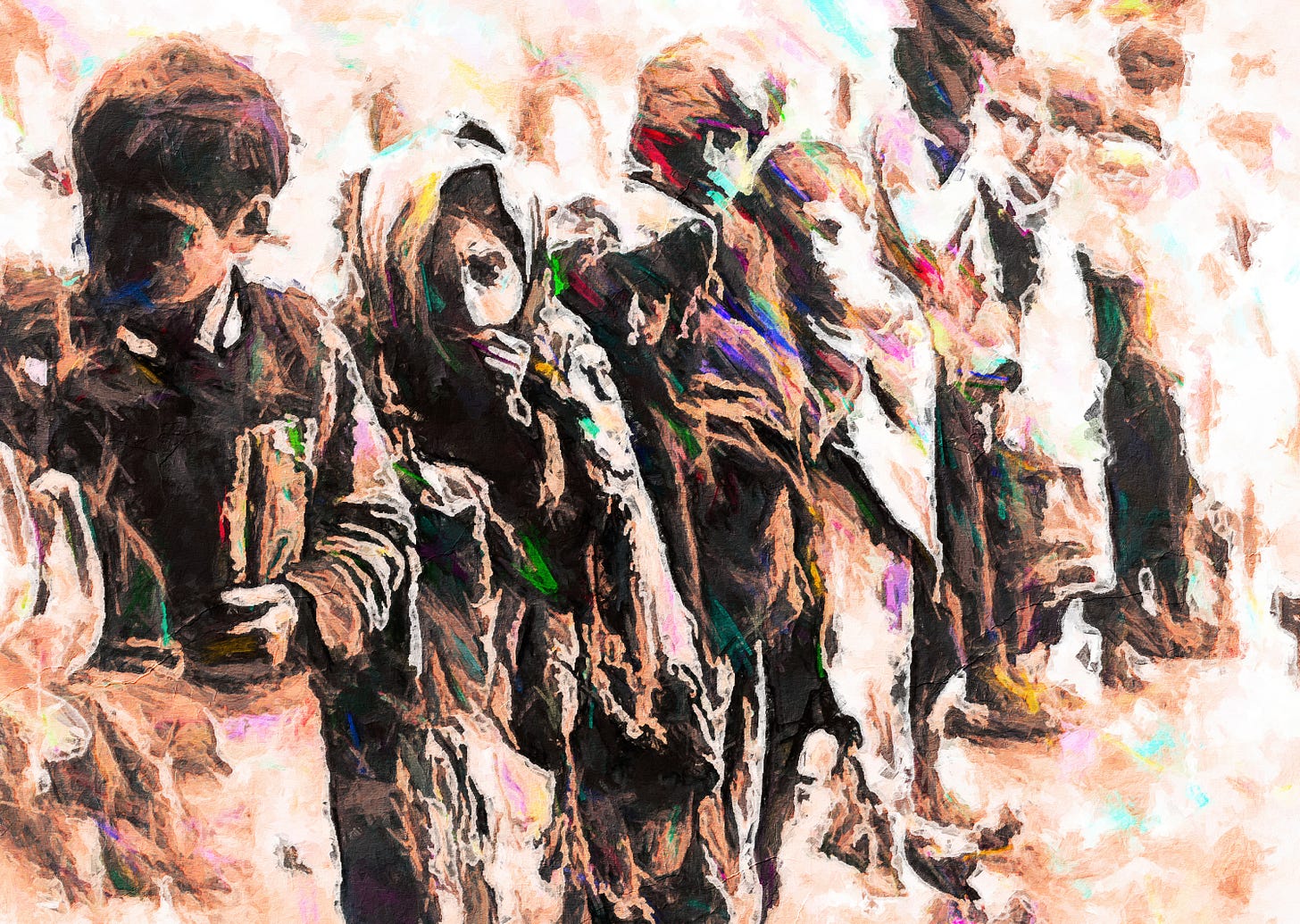Against Dehumanization
Every other line of unspeakable immorality lies past this one.
Gradually it was disclosed to me that the line separating good and evil passes not through states, nor between classes, nor between political parties either -- but right through every human heart -- and through all human hearts.
-Aleksandr Solzhenitsyn
More than a thousand people have already been killed, with thousands more wounded, just days after Hamas’s surprise attack on Israel. Israeli and Hamas fighters are among the dead and wounded, but so are civilians, from both sides and from abroad.
The Hamas militants’ unspeakable act of terrorism was the worst civilian massacre in Israeli history, killing at least 260 civilians with countless more taken hostage. A coordinated military response was inevitable. Perhaps just as inevitable, although more lamentably so, was the tenor of the Israeli response.
In televised comments, Israel Defense Minister Yoav Gallant explained that he had ordered “a complete siege on Gaza,” an area densely populated with more than 2 million Palestinians. This siege entails “No electricity. No food. No fuel. No water.” He emphasized that “we are fighting human animals and we act accordingly.”
What Does Dehumanization Accomplish?
It bears emphasis that Hamas committed heinous acts which justify a strong military response. I do not oppose Israeli military action in Gaza. (In fact, I support it.) What I do oppose, what I always oppose, is language tailored explicitly to dehumanize the enemy.
The first pushback I receive to saying this is that what Hamas did (and have a track record of doing) is monstrous. I agree. And I support Israel’s military response to this attack. But does dehumanizing Palestinians aid in the military objective? It couldn’t possibly—nor is it designed to. It is designed to harden civilians’ hearts to any violence that may be inflicted in Gaza, but Israeli civilians no doubt already vehemently support the military operation. It defies belief that failing to dehumanize the target would render Israeli citizens too soft to support the war effort.
The second pushback I receive is that we shouldn’t defang ourselves in opposing evil. And again, I agree. But doesn’t condemning Hamas as terrorists who committed evil acts necessitating swift military justice accomplish the goal? There is no end to the appropriate invectives that can be brought to bear here. Going further, lowering the enemy below the level of “human” isn’t even helpful in accomplishing this goal. Animals are not typically credited with having agency and therefore are rarely seen as anything like morally culpable. A full human committing a fully evil act is the most condemnable thing there is.
The real question is: what does dehumanizing accomplish that simply condemning and vowing to exact justice does not? I think it’s clear. Gallant’s dehumanizing language came in the same breath as his announcement that he was concertedly depriving all of Gaza of “electricity, food, fuel, and water.” We’re two days in, this is not the last escalation we will see. His language seems tailored to encourage enough contempt that any action taken against Palestine, no matter how harsh, inhumane, or illegal, would garner the necessary public support.
The Power of Dehumanization
This reveals the central aim and raw potency of dehumanization whenever it’s employed—once the target is dehumanized, nothing is off limits. There is sanctity to human life. We can hunt animals for food, or even sport, but humans can only be killed when justified. We believe that humans can be punished when their actions call for punishment, but we also believe they can never be raped, tortured, enslaved, or indiscriminately killed en masse. Some lines cannot be crossed.
And yet, all of these things have followed from regimes in power who dehumanized their enemies. To the Germans, Jews were rats; to the Hutus, the Tutsis were cockroaches. To all “enlightened” societies looking to preserve the economic benefits of slavery, Africans were sub-human.
Dehumanizing the enemy is the most fundamentally important moral line not to cross, precisely because every worse moral line you can think of lies past the line of dehumanization. The line may seem banal, and in many ways it is. But its banality gives way to profound consequences. It is the last bulwark between civil societies and unspeakable acts.
And it is just as important to hold the line when the enemy is guilty of dehumanizing themselves. Rape is not a civilized response to rape, nor is enslaving to slavery, nor eradication to genocide. One of the high moral watermarks of Western society—and truly a marvel given the potential for wrath latent in human nature—was the Marshall Plan and the Nuremberg Trials, where German society was occupied and rebuilt and individual Germans were tried, convicted, and executed for their heinous crimes carried out during the Holocaust. They were not subjected to an Aryan Holocaust. They were not tortured, starved, sterilized, or any of the other methods of cruelty the Germans inflicted on their dehumanized Jewish captives. And we (rightfully) see that as a moral victory of the West.
The Line Between Good and Evil
To a modern civilized society steeped in stability, these concerns no doubt seem like hyperbole. But time and time again, humans prove more than capable of backsliding into depravity. Israel is not immune. (Nor is Europe or the US for that matter.)
The most fundamental difference between an Israeli soldier and Hamas militant is which side of the border they were born on, and to which parents. There but for the grace of God go I.
The capacity for evil lives in all our hearts. Each line we cross takes us a step closer. The line we must never cross is the line that says none of the other lines actually matter, not for them at least. Not for the animals.


